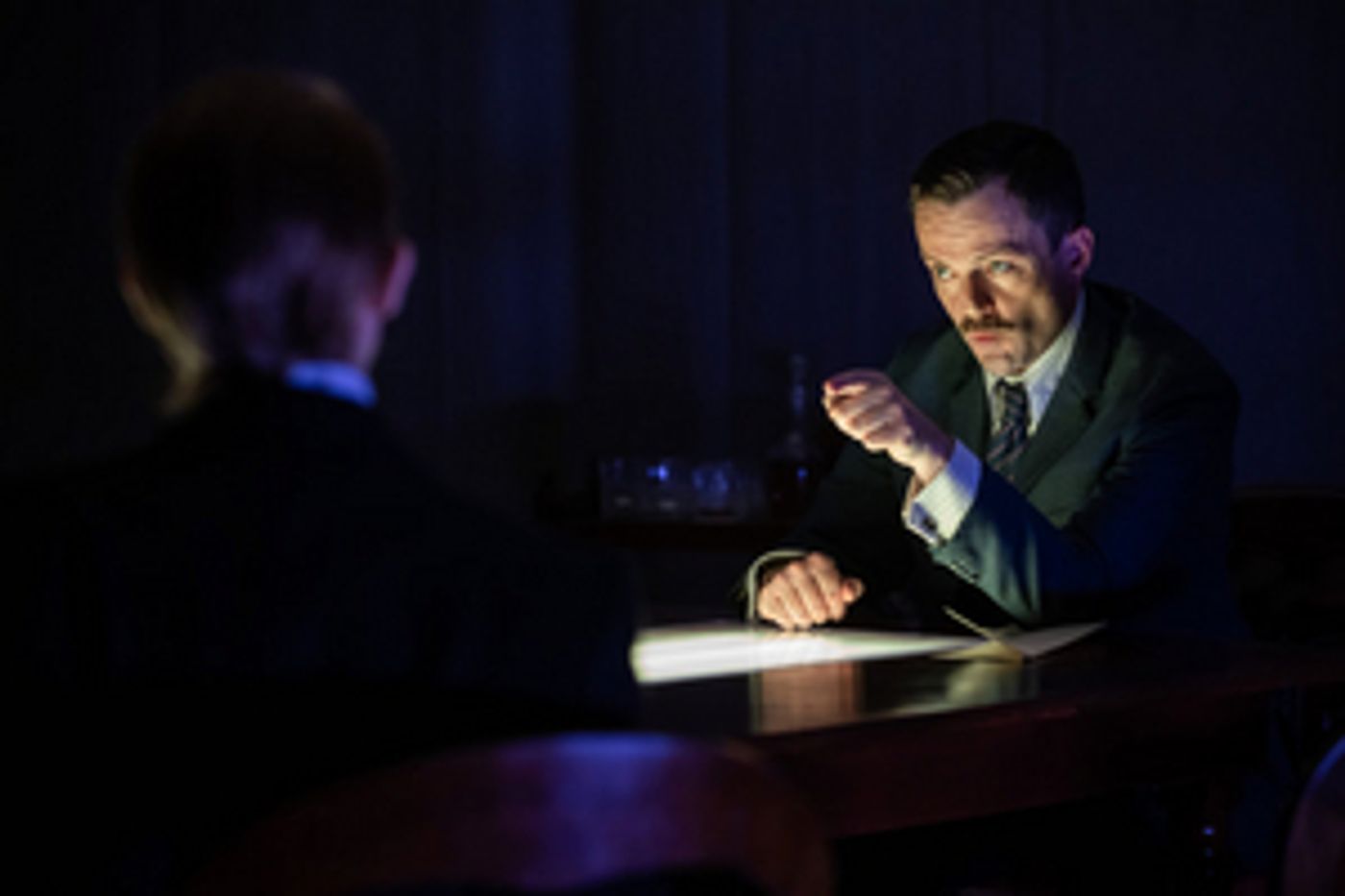Review: THE TREATY, Embassy of Ireland
A sensational recreation of the negotiations leading to the Anglo-Irish Treaty of 1921

![]() It struck me when reading the programme before the play began that I didn't quite know exactly what the eponymous treaty settled and that such ignorance was not unusual on this side of the Irish Sea. The thought rose in my mind that it is the Englishman's curse to know too little of Ireland's history; it is the Irishman's curse to know too much.
It struck me when reading the programme before the play began that I didn't quite know exactly what the eponymous treaty settled and that such ignorance was not unusual on this side of the Irish Sea. The thought rose in my mind that it is the Englishman's curse to know too little of Ireland's history; it is the Irishman's curse to know too much.
Colin Murphy's electrifying recreation of the negotiations that led to the Anglo-Irish Treaty signed 100 years ago this week, brilliantly delivers Fishamble Theatre Company's brief to deliver new plays of national importance with a global reach (and the adjective 'national' applies to the UK as much as it does Ireland). We're in the room where it happens, with the competing interests of hardliners and pragmatists jockeying for position on the Irish side and, on the British side, politicians juggling domestic and Imperial issues. Impending war casts its long dark shadow on the table, should either side walk away.
What emerges is strongly reminiscent of Alastair Campbell's account in his diaries of negotiations that led to the Good Friday Agreement of 1998, as impasses are met and resolved, ground is taken here and conceded there and unlikely personal relationships form to establish the trust sworn foes require in order to look each other in the eye and shake hands on a deal.
If that's the didactic element of the play (and there are more echoes of the current Brexit induced border crisis than you can shake a shillelagh at), the theatrical element bursts vividly to life - in the style of Hamilton - as we get to know the characters involved.
Immediately we're drawn to the guerrilla brawler and bête noire of the Brits, Michael Collins, the man who can stop or start the shooting as long as he can keep his yahoos onside. Patrick Moy lends enormous charisma to a self-educated man, brimming with intelligence and charm, who had me thinking of the late Martin McGuinness - especially in those photographs of him roaring in shared laughter with Dr Ian Paisley.
If Moy gets the plum role, the rest of the ensemble are no less impressive on bringing their subjects to life. Karen Ardiff shows the Irish delegation leader, Arthur Griffith, to be a committed but slowly wearying political operator; Shadaan Fefeli, standing stock still to control his shaking anger, reveals Robert Barton's intellectual and emotional conflict in signing the Treaty; Jane Brennan peers through spectacles, her Éamon de Valéra playing a very long game.
On the British side, Jonathan White's David Lloyd George give Collins a run for his money in the charisma stakes; Simon O'Gorman excels as his civil servant (and Welsh speaking) sidekick / fixer, Tom Jones; and Camille Lucy Ross embodies Winston Churchill's ruthless realpolitik allied to the keenest of emotional intelligences.
Just as you begin the wonder whether it's all too intense (95 minutes all-through), one's transported to a version of a pub in Kerry, as traditional songs arise as if from nowhere, a bonding, beautiful break for the mind and a delight for the heart - theatrical magic.
Conall Morrison has directed an important play, but, perhaps more crucially than that, he has directed a wholly engaging drama from what is, on the face of it, unpromising raw materials, enough to send me scurrying to Wikipedia the moment it was polite to look at my phone. The brief coda outlines the fates of the men we have grown to love and fear and few fare well (with one exception of course) and the treaty itself created as many problems as it solved. But, without it, would we be where we are, a century on? Or, (perhaps, and with the heaviest of hearts), I should recast that question to ask would we be where we were in 2016?
Photo Ste Murray
Reader Reviews
Videos

